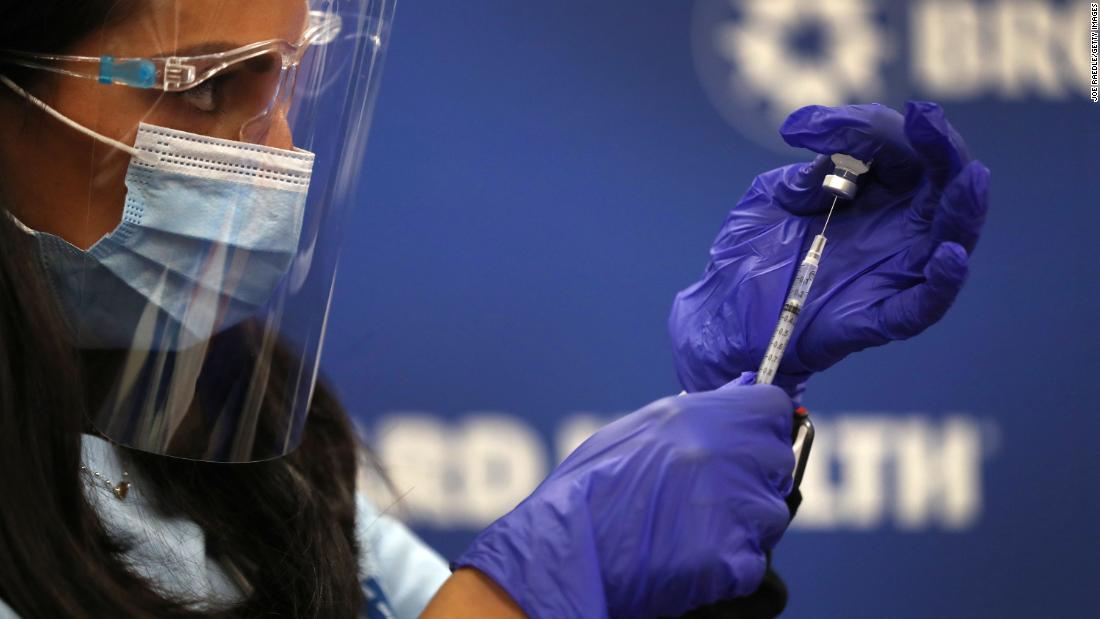CNN confirmed with the FDA on Wednesday that if a manufacturer requests a change in its emergency use authorization, the manufacturer will need to send data to the FDA to support the requested change.
“If it moves, it won’t be the FDA that will do it. They are subject to legal operations that dictate how drugs are approved in the country, and so it’s not surprising to hear them say that their strong preference is to keep what we know that it works, “said Benkeser, adding that any changes would likely be submitted to the FDA for consideration and then the agency would review the data that supports those changes.
“They will want to see correlated data,” said Benkeser. “And if we can establish and validate a correlation, I think they will be happy to consider alternative dosing schedules, as well as new vaccines in the coming year.”
‘Suggesting changes … is premature’
Health officials have speculated on the possibility of extending the vaccine supply by giving people a single dose instead of two, or perhaps cutting doses in half. British authorities created an uproar by saying that they would consider such changes.
In Britain, medical officials last week decided to extend the 21-day period between administering the first and second doses of the Pfizer / BioNTech Covid-19 vaccine to stretch the vaccine supply.
Pfizer said it had no data showing that just a single dose of its vaccine would provide protection against the disease after more than 21 days.
“The Pfizer and BioNTech Phase 3 study for the Covid-19 vaccine was designed to assess the safety and efficacy of the vaccine after a 21-day, two-dose schedule,” Pfizer said in a statement on Thursday. “There is no data to show that protection after the first dose is maintained after 21 days.”
“These changes at this time carry the risk of undermining vaccine effectiveness and eroding the public confidence needed for successful vaccine adoption. As always, our approach against this pandemic must be based on science, leadership, funding, collaboration and cooperation. “. Dr. Barbara D. Alexander, president of IDSA, and Dr. Rajesh Gandhi, president of the HIV Medicine Association, wrote in the joint statement.
‘It’s a unique moment’
The overall development of Covid-19 vaccines – including dosing schedules and the process of putting them on the guns – is unprecedented, added Benkeser of Emory University.
“In many ways, it is a unique moment,” said Benkeser. In the past, “there were outbreaks and science had to respond very quickly in producing a vaccine. Ebola, for example, was one in which we obtained a vaccine in the field that seemed to be very effective – but the Ebola outbreak was never on the scale. Covid. “It took years for an Ebola vaccine to be approved.
Now, initiatives to administer Covid-19 vaccines to people in the United States are being criticized as slow and clumsy, but implementation is likely to “gain momentum” in the coming weeks, said Anthony Fauci on Tuesday.
“We have to be very careful, Randi, not to jump to conclusions based on a very short period of time, because we have just started,” said Fauci.
“The government and local residents, including governors, mayors and others, started in the last weeks of December, right in the middle of the holiday season,” said Fauci. “I think we should wait until the first and second weeks of January to see if we can keep up.”
